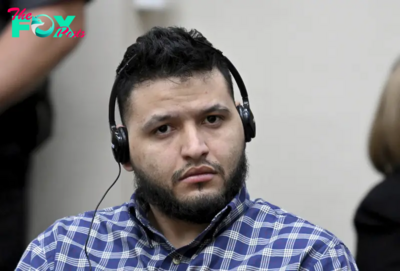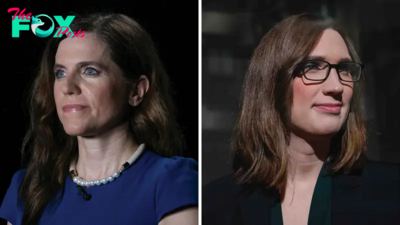Politics
When retirement takes critical corporate knowledge with it – Mary T. O’Sullivan
By Mary T. O’Sullivan, MSOL, contributing business leadership writer
As baby boomers retire, they will take with them years of organizational knowledge accumulated from the decades of experience spent working in their respective fields. Tyfoom, (a management consulting company)
In the 1980s, there was a generation gap among the workforce at GE. The company needed new blood and found it necessary to offload older, more highly paid employees. They devised a plan that would work for many employees, without seeming to be prejudicial or discriminatory, but would hasten the retirement of hundreds of people. It was called the 55 plan, meaning some combination of age and years of service that added up to 55 would allow an employee to retire as if they had stayed on to an older age, say 62 or 65. People with that magic number jumped onboard quickly. There was one major problem, however. A number of employees with critical corporate knowledge decided to take the offer.
The company was caught flat footed. Significant intellectual information was going out the door. Once management realized this was happening, they rescinded many offers, causing great morale problems and resentment. They hadn’t planned well for the departure of their brain trust. In anticipation of losing other crucial people, they informed these folks that they could not retire, making their plan look like folly. The company had not addressed how to maintain critical skills while their older employees left the company. And today, companies are facing the same problem: how to maintain “deep institutional knowledge” as Baby Boomers retire.
A 2021 Harris poll showed that 47% of younger workers felt that they were left struggling to learn a job without either guidance or mentorship from an experienced employee. By 2022, 76 million Baby Boomers had reached age 65. Bea Bourne, a business professor at Purdue University, maintains that the Boomer “Brain Drain” not only takes specific technical knowledge with it at retirement, but also those subjective “tribal skills” gained through personal and professional “living skills”, as well as “unwritten” knowledge that exists only in the heads of some people and is not generally known or understood. After an employee has exceeded at his or her work for many years, employers usually don’t question how they perform their jobs, even if the person performing the work has an intuitive sense of how the work gets done.
The next generation aren’t mind readers, they won’t be able to understand the nuances of a job if the processes and procedures and general knowledge are not written down or somehow codified. Experts will argue that experience creates the subtleties of a job, the fine tuning that only comes with years in the workforce. A Deloitte study reported that by 2028, there will be 2.4 million manufacturing jobs alone left unfilled. As pointed out by this report, the problem isn’t the number of people available to fill these jobs, it’s the lack of skilled and qualified people to fill the jobs.
When people retire, they may not be forthcoming about the specifics of how to accomplish the job successfully. What could be the solution in order to maintain business continuity? Some companies have formalized their knowledge maintenance and created official transfer programs so that the void of a retiring employee is filled. BAE, an international aerospace and defense company forms a “knowledge transfer group”, once it learns that an employee with “deep institutional knowledge” is retiring. The program began as a pilot in 2013, and since has saved the company $120,000 to $180,000 per project, adding up to millions of dollars per year.
The knowledge transfer idea has caught on among other organizations as well. Two GE Businesses as well as GM and ETS, have set up similar programs, intent on capturing essential corporate knowledge. Retiring leaders are positioned as coaches and mentors and the companies have instituted more intensive onboarding programs for new employees.
Rewo, a management consulting platform, suggest several innovative ways to retain what should be saved for future generations. In addition to preserving know how on a “wiki” type platform, the company suggests using video, screencasts, storytelling of how a challenge was overcome, creating podcasts reflecting a senior leaders’ passion for the work and affinity to the company. In this way, the business can maintain what it already has and build on existing knowledge to move forward with the next generation.
It took almost a catastrophe for organizations to get serious about corporate knowledge. In fact, in the mid 2000s, a number of GE engineers had to be called back to work in a foreign country when a cancelled program was resurrected. (Unfortunately, some already had died.) There is no predicting the future, but planning and foresight can prevent the brain drain that happens when key employees take their many years of experience and intellectual prowess with them at retirement. Without a plan for adapting to generational changes, companies risk falling behind and losing out to competitors. Coaxing potential retirees into supporting the company’s knowledge trust is essential to keep the company on a growth path. According to Rewo, it’s imperative to “future proof” companies against the “potential greatest brain drain the world has ever seen”.
Put simply- the workplace will suffer if the previous generation’s mastery of skills is not captured and passed on through knowledge transfer. – Tyfoom
___

Connect with Mary:
www.encoreexecutivecoaching.com
Buy My Book
https://www.linkedin.com/in/marytosullivan
Read all Mary’s columns here: https://rinewstoday.com/mary-t-osullivan-msol-pcc-shrm-scp/
–

Mary T. O’Sullivan, Master of Science, Organizational Leadership, International Coaching Federation Professional Certified Coach, Society of Human Resource Management, “Senior Certified Professional. Graduate Certificate in Executive and Professional Career Coaching, University of Texas at Dallas.
Member, Beta GaMMA Sigma, the International Honor Society.
Advanced Studies in Education from Montclair University, SUNY Oswego and Syracuse University.
Mary is also a certified Six Sigma Specialist, Contract Specialist, IPT Leader and holds a Certificate in Essentials of Human Resource Management from SHRM.
-

 Politics6h ago
Politics6h agoWhy Trump Actually Needs Mexico
-

 Politics6h ago
Politics6h agoMan Convicted of Killing Laken Riley Sentenced to Life in Prison Without Parole
-

 Politics7h ago
Politics7h agoAmericans agree more than they might think − not knowing this jeopardizes the nation’s shared values
-

 Politics7h ago
Politics7h agoRed flag laws are still used in Colorado’s Second Amendment sanctuaries, just less frequently
-

 Politics11h ago
Politics11h agoHow the Biden Administration Protected Abortion Pill Access—and What Trump Could Do Next
-

 Politics11h ago
Politics11h agoWhy Trump’s Tariffs Could Raise Grocery Prices
-

 Politics22h ago
Politics22h agoThe First Trans Member of Congress Expected Pushback Like Mace’s Bathroom Rule
-

 Politics22h ago
Politics22h agoNew York Prosecutors Oppose Dismissing Trump’s Hush Money Conviction



























